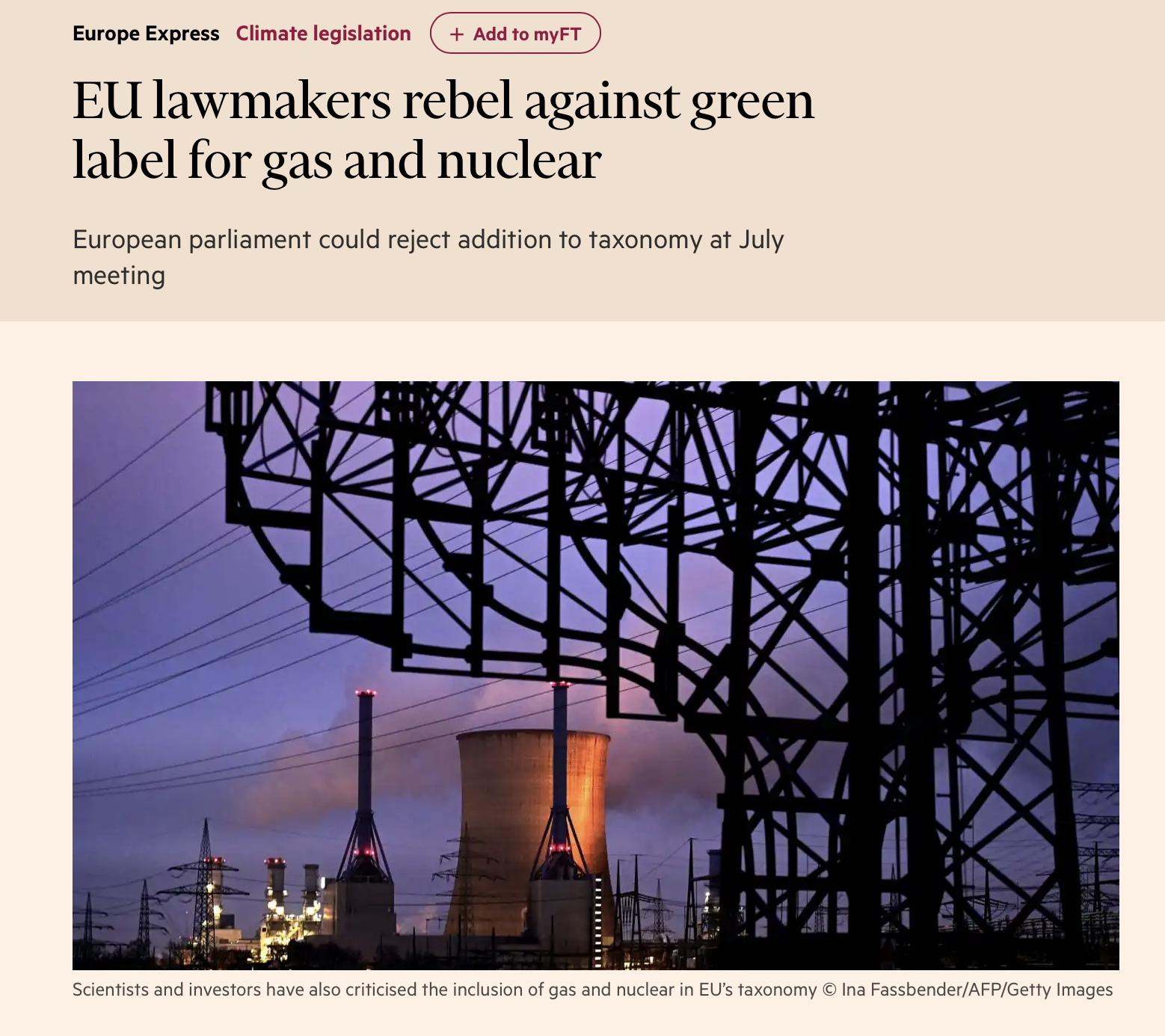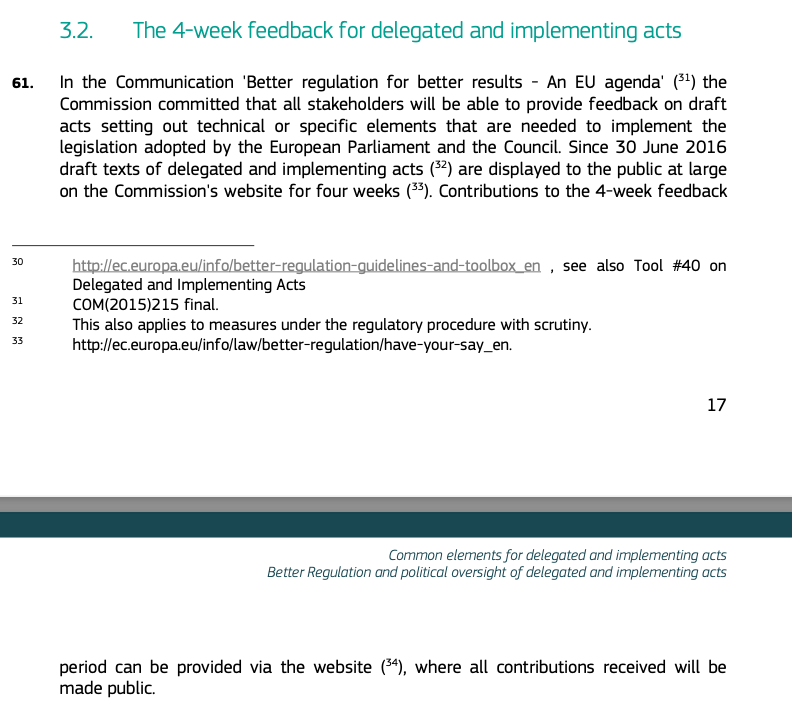Public interest in EU secondary legislation is limited.
It is hard to be interested in something if the public doesn’t have an opportunity to give their feedback on draft proposals. And, for most secondary legislation, the public is denied the chance to give their direct feedback.
And, most EU legislation (around 97%) is secondary legislation (implementing acts, delegated acts, RPS measures).
It is nice to see the media and MEPs waking up to the problem. The Parliament’s challenge to the Commission’s proposal to green label gas and nuclear under EU taxonomy rules has highlighted the issue.
The FT mentioned the issue of no-public consultation.


The start of an objection to the Commission’s proposal to green-label gas and nuclear power got off to a strong start on 14 June. 76 MEPs backed the challenge, 62 objected, and 4 abstained. The vote against was stronger than many thought and suggests the Commissioner’s office calls to back the proposal fell on deaf ears.
MEPs raised concerns about the lack of public consultation, including:

We will find out in early July if the full European parliament backs the challenge.
Lack of public consultation
Public consultation on delegated acts is the exception, not the rule.
Looking at the 76 delegated acts adopted this year, the Commission has run public consultations on 26% of them.
Looking at the attachment DG FISMA and SANTE appear to be reluctant to give the public the opportunity to give feedback on the laws.
Consultation is the exception, not the rule
It is as if some Commission Directorate-Generals are unaware of the Better Regulation Guidelines. Looking at the organisation charts of some Directorate-Generals, don’t have dedicated units providing much-needed advice on Better-Regulation (FISMA,) or have just established them (SANTE).
The current practice of systematic non-public consultation is at odds with the Commission’s own Guidelines.

Source: Guidelines for the Services of the Commission, Delegated and Implementing Acts, November 2020.
It is true that there are exceptions when public consultation is not necessary.

Yet, in practice consultation is the exception to the rule.
What can the EP do to improve things?
If the Commission feel reluctant to let the sunshine of public consultation improve secondary law-making, the European Parliament could intervene. Here are three actions they could take:
1. The EP could ask that every proposal’s explanatory memorandum provide the reasoning for not-running the 4-week public consultation. A random look at the adopted delegated acts gave no indication of why there was no public consultation. Any act/measure that does not contain that explanation could be challenged.
2. The Parliament could ask the Commission to present a report to the European Parliament on why they are not abiding by the spirit of the Better Regulation Guidelines.
3. As most secondary legislation is adopted behind closed doors, the EP could publish their comitology newsletters to give the public the chance to alert MEPs if the letter or the spirit of secondary legislation is not being followed.
It is hard to understand why 4 weeks of getting the public feedback would so derail the EU’s agenda. The feedback is likely only to benefit it.